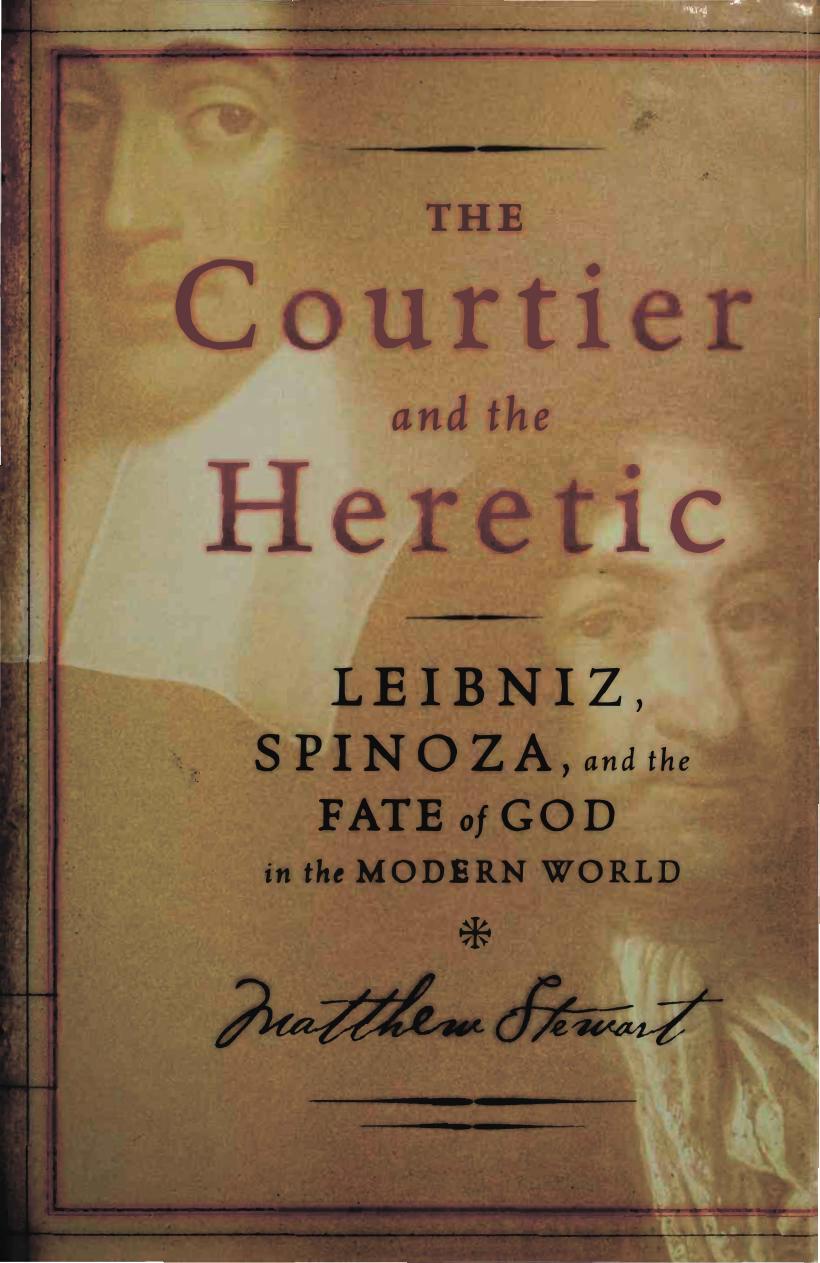The Courtier and the Heretic: Leibniz, Spinoza, and the Fate of God in the Modern World by Matthew Stewart

Author:Matthew Stewart [Stewart, Matthew]
Language: eng
Format: epub, pdf
Tags: en, Philosophy, Autobiography
ISBN: 9780393329179
Publisher: W. W. Norton & Company
Published: 2006-01-15T02:48:08+00:00
Salvation
Happiness, too, became a problem in the seventeenth century. Much of the blame for this development, as usual, should go to the Reformation of the previous century. So long as there was a single, “catholic” church, the question of how to achieve blessedness remained in the hands of the appropriate ecclesiastical authorities. Once that church lost its universality, however, the question of happiness fell out of the hands of God and landed in the lap of individual conscience. The success of so many new varieties of religious practice, ironically, made plain the individual character of faith.
Spinoza himself makes the point: “You will not be able to deny that in every church there are very many honorable men who worship God with justice and charity,” he tells one correspondent. “For we have known many such men among the Lutherans, the Reformed Church, the Mennonites, and the Enthusiasts, to say nothing of others…. You must therefore grant that holiness of life is…common to all.” Spinoza politely neglects to include in the list his own confessional status, that of an apostate Jew—itself perhaps the most glaring evidence for the existence of a purely personal path to salvation.
At the very time that happiness became a personal matter, it also seemed to become much harder to achieve. In a world where God was increasingly remote and indifferent, where humankind’s privilege in the order of things seemed under threat, and where no rational individual could accept the cosmogonies handed down by the theological traditions, assurances of salvation were not easy to come by. No one, of course, believed God to be more indifferent, or humanity’s privilege less sure, than Spinoza himself. Happiness was therefore his biggest problem. That is, the greatest challenge Spinoza faced was to explain how to be happy—and how to be moral, which in his view was the same thing—in a world that is thoroughly secular. In his Treatise on the Emendation of the Intellect, as we know, Spinoza announced that the sole aim of his philosophy is to acquire “supreme, continuous, and everlasting happiness.” In the Ethics he claims he has done just that.
Happiness is freedom, says Spinoza. It follows when we act in accordance with our own deepest nature—when we “realize ourselves,” as it were. Unfortunately, we humans rarely have the privilege of acting according to our deepest nature, for in our ignorance of ourselves and of the world we submit ourselves to the guidance of forces beyond our control. Humankind is battered about on a sea of emotions, the philosopher thunders; we are tossed about in a chaos of hope and fear, joy and despair, love and hate, impelled along a random course whose only certain destination is eventual unhappiness. Most people most of the time, concludes Spinoza, are passive. But the point of life is to be active.
Spinoza’s first step toward freedom is to haul the emotions before the bar of reason. “I shall consider human actions and desires,” he writes, “as though I were concerned with lines, planes and solids.
Download
The Courtier and the Heretic: Leibniz, Spinoza, and the Fate of God in the Modern World by Matthew Stewart.pdf
This site does not store any files on its server. We only index and link to content provided by other sites. Please contact the content providers to delete copyright contents if any and email us, we'll remove relevant links or contents immediately.
Hit Refresh by Satya Nadella(9138)
When Breath Becomes Air by Paul Kalanithi(8447)
The Girl Without a Voice by Casey Watson(7889)
A Court of Wings and Ruin by Sarah J. Maas(7848)
Do No Harm Stories of Life, Death and Brain Surgery by Henry Marsh(6941)
Shoe Dog by Phil Knight(5270)
The Rules Do Not Apply by Ariel Levy(4970)
A Higher Loyalty: Truth, Lies, and Leadership by James Comey(4964)
Hunger by Roxane Gay(4928)
Tuesdays with Morrie by Mitch Albom(4784)
Everything Happens for a Reason by Kate Bowler(4743)
The Immortal Life of Henrietta Lacks by Rebecca Skloot(4589)
Millionaire: The Philanderer, Gambler, and Duelist Who Invented Modern Finance by Janet Gleeson(4479)
How to Change Your Mind by Michael Pollan(4357)
All Creatures Great and Small by James Herriot(4323)
The Money Culture by Michael Lewis(4208)
Man and His Symbols by Carl Gustav Jung(4137)
Elon Musk by Ashlee Vance(4128)
Tokyo Vice: An American Reporter on the Police Beat in Japan by Jake Adelstein(3996)
